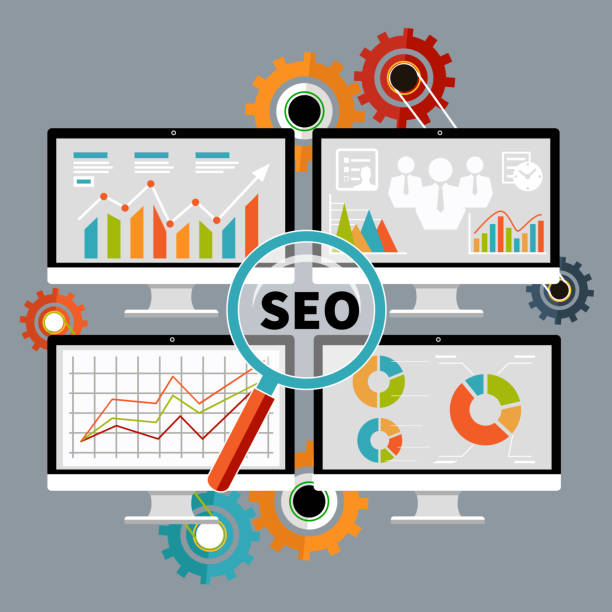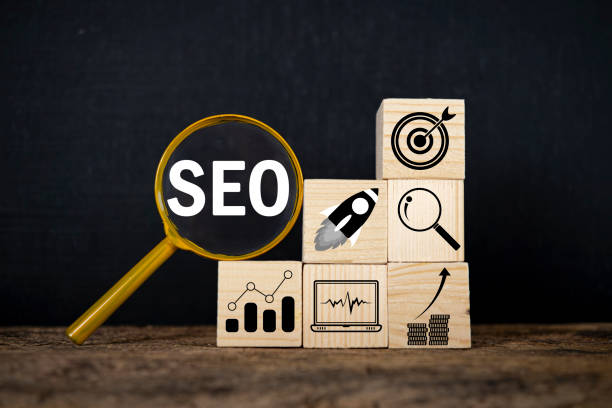What is Off-Page SEO and Why is it Important?

Off-Page SEO is a collection of activities that take place outside of your website to improve your site’s ranking in search engine results pages (SERPs).
While On-Page SEO focuses on optimizing website content and its structure, Off-Page SEO aims to increase the credibility and authority of your domain through link building, branding, and other online marketing activities.
The importance of Off-Page SEO lies in the fact that search engines like Google consider the credibility and reputation of a website as an important factor in ranking.
A website with quality backlinks and a strong presence on social networks is more likely to achieve a higher ranking in search results.
In fact, Off-Page SEO shows search engines that your website is a reliable and valuable resource in your field.
Search engines, with their complex algorithms, are looking for the best and most relevant results for users.
Off-Page SEO helps you get closer to this goal because it assures search engines that your website is noteworthy.
In other words, Off-Page SEO is like a credible recommendation from other websites and online resources that tells search engines your website is valuable.
As a result, by investing in Off-Page SEO, you can attract more organic traffic to your website, increase your brand credibility, and ultimately achieve your business goals. Undoubtedly, having a strong Off-Page SEO strategy is essential for any business looking to succeed in the online world.
One of the key factors of Off-Page SEO is creating an effective link-building strategy.
This means you should be looking to earn backlinks from reputable websites related to your industry.
The higher the quality of your backlinks, the greater the credibility and authority of your domain will be.
For example, a backlink from a reputable news website is much more valuable than a backlink from a low-credibility website.
Therefore, you should be looking to build relationships with other related websites and businesses so you can earn quality backlinks.
Ultimately, Off-Page SEO is an ongoing process that requires effort and patience.
However, by investing in this area, you can achieve significant results in the long term.
#LinkBuilding, #ContentMarketing, #SocialNetworks, and #Branding are among the main components of Off-Page SEO.
Do you dream of a thriving online store but don’t know where to start?
Rasaweb is your comprehensive e-commerce website design solution.
✅ Attractive and user-friendly design
✅ Increased sales and revenue⚡ Get free consultation
What is Link Building and What Role Does it Play in Off-Page SEO?

Link Building is the process of earning links from other websites to your website.
These links are known as “backlinks” and are one of the most important factors in Off-Page SEO.
Search engines use backlinks as a vote of confidence from other websites to your website.
The more reputable and relevant your backlinks are, the more valuable they will be and improve your ranking in search results.
Link building is important because it shows search engines that your website is a valuable and reliable resource in your field.
When another website links to your website, it is essentially telling search engines that your content is valuable and relevant.
This causes search engines to consider your website a reliable source and improve its ranking in search results.
In addition, link building can also help increase your website’s organic traffic.
When users click on a link on another website and are directed to your website, this traffic is considered referral traffic and can help increase your brand awareness and attract new customers. Therefore, link building is a vital strategy in Off-Page SEO that can help improve your website’s ranking, traffic, and credibility.
There are different methods for link building, including creating high-quality and valuable content that other websites want to link to, participating in industry events and building relationships with other websites and businesses, and using white hat link-building strategies.
The most important thing in link building is to focus on quality and relevance.
Instead of trying to earn a large number of low-quality backlinks, you should be looking to earn backlinks from reputable websites related to your industry.
These types of backlinks will be much more valuable and have a more positive impact on your ranking in search results.
Finally, remember that link building is an ongoing process that requires effort and patience.
However, by investing in this area, you can achieve significant results in the long term.
Effective Link-Building Strategies to Improve Off-Page SEO

There are several link-building strategies that can help improve Off-Page SEO.
One of the most effective strategies is to create high-quality and valuable content.
When you create unique and helpful content, the likelihood that other websites will want to link to it increases.
This content can include educational articles, comprehensive guides, infographics, videos, and other content formats.
Another strategy is to participate in industry events and build relationships with other websites and businesses.
By attending these events, you can meet people related to your industry and create opportunities to earn backlinks.
For example, you can ask them to link to your content or collaborate with them on joint projects.
Another effective method in link building is to post a guest post on other websites and place your website link in it.
This also introduces your business to the audience of that website, and they may visit your site.
Another important strategy in Off-Page SEO is the use of social networks.
By sharing your content on social networks, you can reach a wider audience and increase the likelihood that other websites will link to your content.
In addition, social networks can also help increase your brand awareness and attract new customers.
Finally, you should remember that link building is an ongoing process that requires effort and patience.
However, by using effective strategies and focusing on quality and relevance, you can achieve significant results in the long term.
Also, while link building, you should pay attention to the #alt_text of the link, the #target_page, and the #domain_authority of the website you are getting a backlink from.
Below is a table for reviewing the domain authority of backlinks.
| Domain Authority (DA) | Description | Suggested Actions |
|---|---|---|
| 0-20 | Low Authority | Earning links from these sites has little impact. |
| 21-40 | Moderate Authority | Earning links can be helpful, but the main focus should not be on these sites. |
| 41-60 | Good Authority | Earning links from these sites is recommended. |
| 61-80 | Very Good Authority | Earning links from these sites is very valuable. |
| 81-100 | Excellent Authority | Earning links from these sites has a very significant impact. |
Content Marketing and its Role in Increasing Off-Page SEO Credibility
![]()
Content marketing is a marketing strategy that focuses on creating and distributing valuable, relevant, and consistent content to attract and retain a target audience.
Content marketing plays an important role in increasing the credibility of Off-Page SEO because it can help you earn quality backlinks, increase your brand awareness, and attract more organic traffic to your website.
When you create high-quality and valuable content, the likelihood that other websites will want to link to it increases.
These backlinks show search engines that your website is a reliable and valuable resource and improve your ranking in search results.
In addition, content marketing can also help increase your brand awareness.
When you share your content on social networks and other online channels, you can reach a wider audience and introduce your brand as an authority in your industry.
This can help attract new customers and increase the loyalty of existing customers.
Content marketing can also help attract organic traffic to your website.
When you optimize your content to rank higher in search results, you can attract more traffic from search engines to your website.
This traffic is usually very high quality, as users who are looking for information related to your industry are directed to your website.
To implement an effective content marketing strategy, you must first identify your target audience and understand their needs and interests.
Then, you need to create content that meets these needs and is valuable to your audience.
This content can include educational articles, comprehensive guides, infographics, videos, and other content formats.
Finally, you need to distribute your content on various online channels to reach your target audience.
By using content marketing, you can increase the credibility of your Off-Page SEO, raise your brand awareness, and attract more organic traffic to your website.
Are you tired of your company’s website not meeting your expectations? With Rasaweb, design a professional website that showcases the true face of your business.
✅ Significantly increase new customer acquisition and sales leads
✅ Increase the credibility and trust of your brand with your audience
⚡ Get a free website design consultation!
Social Networks and Their Impact on Off-Page SEO
![]()
Social networks play an important role in Off-Page SEO because they can help increase brand awareness, attract organic traffic, and earn backlinks.
When you share your content on social networks, you can reach a wider audience and introduce your brand as an authority in your industry.
This can help attract new customers and increase the loyalty of existing customers.
In addition, social networks can also help attract organic traffic to your website.
When users click on the links in your posts on social networks and are directed to your website, this traffic can help improve your ranking in search results.
In general, activity on social networks shows search engines that your brand is active and credible, which can have a positive impact on your Off-Page SEO.
To effectively use social networks in Off-Page SEO, you must first identify the appropriate platforms for your target audience and then create content that is suitable for these platforms.
For example, Instagram is suitable for visual content such as photos and videos, while LinkedIn is more suitable for professional and business-related content.
You should be regularly active on social networks and interact with your audience.
Answer their questions, accept their comments, and participate in discussions related to your industry.
Sharing valuable and relevant content on social networks can attract the attention of other websites and blogs and encourage them to link to your content.
These backlinks show search engines that your website is a reliable and valuable resource and improve your ranking in search results.
Finally, remember that social networks are only one component of Off-Page SEO and should be combined with other strategies such as link building and content marketing for better results.
Consistent and strategic activity on social networks can help you increase your brand awareness, attract more organic traffic to your website, and ultimately improve your ranking in search results.
A suitable Off-Page SEO strategy increases your branding credibility.
Branding and Its Impact on Off-Page SEO

Branding plays a very important role in Off-Page SEO.
A strong and well-known brand can help you earn quality backlinks, attract more organic traffic to your website, and improve your ranking in search results.
When you have a strong brand, more people trust you, and the likelihood that they will link to your content or purchase your products and services increases.
A strong brand can also help you get noticed on social networks and attract more audiences.
When you have a strong brand, more people follow you, share your content, and talk about you.
This can help increase your brand awareness and attract new customers.
To create a strong brand, you must first define your brand’s core values and then create a cohesive visual identity for your brand.
This visual identity includes a logo, colors, fonts, and other visual elements that distinguish your brand from other brands.
You must create high-quality and valuable content that aligns with your brand’s core values and attracts your target audience.
You must be actively active on social networks and interact with your audience.
Answer their questions, accept their comments, and participate in discussions related to your industry.
You must build strong relationships with other websites and businesses.
Collaborate with them on joint projects, link to their content, and ask them to link to your content.
By creating a strong brand, you can increase the credibility of your Off-Page SEO, raise your brand awareness, and attract more organic traffic to your website.
Finally, remember that branding is an ongoing process that requires effort and patience.
However, by investing in this area, you can achieve significant results in the long term.
Use all the capacities of #online_advertising and #digital_marketing to strengthen your brand.
The Role of Reviewing and Managing Online Reputation in Off-Page SEO

Reviewing and managing online reputation plays a vital role in Off-Page SEO.
Your online reputation is the perception that others have of your brand on the internet.
This perception can have a significant impact on your search rankings, website traffic, and ultimately, your business success.
Positive reviews and quality links from reputable websites can help improve your online reputation and, as a result, increase your ranking in search results.
On the other hand, negative reviews and low-quality links can damage your reputation and lower your ranking.
Therefore, it is important to continuously review and manage your online reputation.
To check your online reputation, you can use various tools such as Google Alerts, Mention, and Social Searcher.
These tools help you stay informed about comments, discussions, and publications about your brand across the internet.
When you notice negative comments, you must respond to them quickly and professionally.
Try to solve the problem and gain customer satisfaction.
This shows that you value your customers’ opinions and are committed to improving your services.
In addition, you should be looking to earn positive reviews from satisfied customers.
You can ask them to post their comments on your website, social networks, or business review sites.
These positive reviews can help improve your online reputation and attract new customers.
Finally, remember that managing your online reputation is an ongoing process that requires effort and patience.
However, by investing in this area, you can ensure that your brand is properly represented on the internet and benefit from it in Off-Page SEO.
Keep in mind that a good online reputation increases the #conversion_rate of audiences to customers.
| Action | Description | Tools |
|---|---|---|
| Monitoring | Continuous review of comments and brand mentions on the internet. | Google Alerts, Mention, Social Searcher |
| Responsiveness | Professional and quick response to negative comments. | Email, social networks, phone |
| Encouraging Reviews | Asking satisfied customers to post positive reviews. | Email, SMS, survey form |
Competitor Analysis in Off-Page SEO

Competitor analysis is a vital aspect of an Off-Page SEO strategy.
By examining the activities of competitors, you can identify your strengths and weaknesses, discover new opportunities, and create better strategies to improve your ranking in search results.
To begin competitor analysis, you must first identify your main competitors.
These competitors are businesses that operate in your industry and compete for similar keywords in search results.
You can use various tools such as SEMrush, Ahrefs, and Moz to identify your competitors.
After identifying competitors, you must examine their websites and online activities.
Pay attention to the following.
Competitor website content, the quality and relevance of competitor content to target keywords, competitor link-building strategy, the number and quality of competitor backlinks, competitor activity on social networks, the number of followers, the level of interaction, and the type of content shared, competitor online reputation, customer reviews, and content published about the competitor on the internet.
By gathering this information, you can get a complete picture of your competitors’ Off-Page SEO strategy.
Then, you need to analyze this information and identify your strengths and weaknesses compared to competitors.
For example, if you find that your competitors have more backlinks from reputable websites, you should try to earn higher-quality backlinks for your website.
Or if you find that your competitors are more active on social networks, you should strengthen your presence on these platforms and interact more with your audience.
Finally, you should use this analysis to create better strategies to improve your ranking in search results.
For example, you can create better content than your competitors, earn higher-quality backlinks, be more active on social networks, and improve your online reputation.
By continuously analyzing competitors and adapting your strategies, you can outpace competitors and achieve a higher ranking in search results.
Consider #content_optimization to improve your website’s Off-Page SEO.
Did you know that a poorly designed online store can drive away up to 70% of your potential customers? Rasaweb transforms your sales with professional and user-friendly e-commerce website designs.
✅ Significant increase in sales and revenue
✅ Full optimization for search engines and mobile
⚡ [Get free consultation from Rasaweb]
Useful Tools for Off-Page SEO

There are several tools that can help you implement an effective Off-Page SEO strategy.
These tools can help you with keyword research, competitor analysis, backlink review, social network management, and more.
Ahrefs is one of the most popular Off-Page SEO tools that allows you to review your website’s and your competitors’ backlinks, find popular keywords, and track your website’s performance over time.
SEMrush is a comprehensive SEO tool that allows you to conduct keyword research, perform competitor analysis, review backlinks, and track your website traffic.
Moz is an SEO tool that allows you to optimize your website for search engines, review backlinks, and track your ranking in search results.
Google Analytics is a free tool that allows you to track your website traffic, analyze user behavior on your website, and evaluate the performance of your marketing campaigns.
Google Search Console is a free tool that allows you to track your website’s performance in search results, identify technical problems on your website, and submit your sitemap to Google.
BuzzSumo is a tool that allows you to find popular content in your industry, identify influencers related to your industry, and track your content performance on social networks.
Mention is a tool that allows you to track your brand name across the internet, monitor customer reviews, and quickly respond to negative reviews.
By using these tools, you can optimize your Off-Page SEO strategy, outperform competitors, and achieve a higher ranking in search results.
These tools all have different features, and you can use them depending on your needs.
Measuring and Evaluating Off-Page SEO Results

Measuring and evaluating results is one of the important steps in an Off-Page SEO strategy.
Without measuring and evaluating, you cannot know whether your efforts are effective or not, and you cannot optimize your strategies.
To measure and evaluate Off-Page SEO results, you must define key performance indicators (KPIs) and track them regularly.
These indicators must be aligned with your overall business goals and help you understand whether Off-Page SEO helps achieve these goals or not.
Some common KPIs for Off-Page SEO include.
Organic traffic, the number of visitors who come to your website through search results.
Keyword ranking, the ranking of your website for target keywords in search results, the number of backlinks, the number of websites that link to your website.
Domain Authority (DA) and Page Authority (PA), metrics that indicate how credible your website and pages are.
Bounce Rate, the percentage of visitors who leave your website after viewing one page.
Time on Page, the average time visitors spend on each page of your website.
Conversion Rate, the percentage of visitors who take your desired action (such as purchasing a product, signing up for a newsletter, or contacting you).
To track these KPIs, you can use various tools such as Google Analytics, Google Search Console, Ahrefs, and SEMrush.
Regularly (for example, monthly or quarterly) review your results and compare them to your goals.
If your results are not aligned with your goals, you should change your strategies and make the necessary optimizations.
For example, if your organic traffic is not increasing, you may need to change your target keywords, create better content, or earn more backlinks.
By continuously measuring and evaluating the results of Off-Page SEO, you can ensure that your efforts are effective and help achieve your business goals.
Proper evaluation helps you get a better #return_on_investment from your advertising.
Frequently Asked Questions
| Question | Answer |
|---|---|
| What is Off-Page SEO? | Off-Page SEO refers to a set of activities and methods that are performed outside of your website to improve its ranking in search engines, such as building backlinks. |
| Why is Off-Page SEO important for a website? | Off-Page SEO shows search engines that your website is credible, popular, and reliable, which helps to increase domain authority and ranking. |
| What is the most important factor in Off-Page SEO? | Backlinks, or links that are given from other sites to your site, are the most important factor, especially if they are from reputable sites. |
| What are the characteristics of a quality backlink? | A quality backlink comes from reputable sites (with high authority), related to the topic of your site, and with appropriate (natural) anchor text. |
| Do social networks play a role in Off-Page SEO? | Yes, sharing content on social networks can help increase visibility and indirect traffic and send positive social signals to search engines. |
| What is PBN and is it recommended? | PBN (Private Blog Network) is a network of private websites that are used to build backlinks to the main site. Google considers this method spam and its use is strongly discouraged and can lead to penalties. |
| How is natural link building done? | By producing valuable and shareable content, establishing relationships with bloggers and influencers, and attracting media attention. |
| What is Anchor Text in a backlink? | It is the text in which the link is placed. Using diverse anchor texts related to the keyword appears more natural and helps SEO. |
| What is the connection between Local SEO and Off-Page SEO? | Local SEO includes off-site activities such as registering in Google My Business, local directories, and receiving online reviews, which help businesses appear in local search results. |
| How can competitor backlinks be reviewed? | Using tools like Ahrefs, Semrush, or Moz, you can analyze the backlink profiles of competitors and identify new link-building opportunities. |
And other services of Rasa Web Advertising Agency in the field of advertising
Smart Social Media: A new service for increasing digital branding through intelligent data analysis.
Intelligent Data Analysis: A professional solution for digital branding with a focus on intelligent data analysis.
Intelligent Conversion Rate Optimization: Designed for businesses looking for online growth through proprietary programming.
Smart UI/UX: Transform customer attraction with the help of user experience customization.
Smart Social Media: Professional optimization for digital branding using marketing automation.
And more than a hundred other services in the field of internet advertising, advertising consulting, and organizational solutions
Internet Advertising | Advertising Strategy | Advertorial
Resources
What is Off-Page SEO? Comprehensive Guide to Off-Page SEO | Zoomit
,What is Off-Page SEO and What Effect Does it Have on Site Ranking? – Chetor
,What is Off-Page SEO? – Aryan Web
,What is Off-Page SEO? Off-Page SEO Training and Ranking Increase Techniques – Faraznetwork
? To elevate your business in the digital world, Rasaweb Aferin, with its comprehensive and specialized services including Custom Website Design, SEO and content marketing, paves the way for your growth. With us, experience a powerful and purposeful presence online.
📍 Tehran, Mirdamad Street, next to the Central Bank, South Kazerun Alley, Ramin Alley, No. 6




